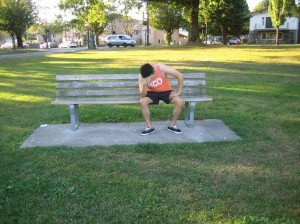Introduction
Unexpected shortness of breath, or breathing trouble (dyspnoea), is the most common motive for visiting a hospital. It’s also one of the most common reasons people call for an ambulance.
It’s normal to get out of breath when you’ve overexerted yourself, but when breathlessness comes on suddenly and unexpectedly, it’s usually a warning sign of a medical condition.
When to call a doctor

You should phone your doctor straight away if you have unexpected shortness of breath, as there might be a problem with your airways or heart. Your doctor will evaluate you over the phone, and might ask you to come in or admit you to hospital. If your shortness of breath is the cause of nervousness, you might be asked to come to the hospital.
If you’ve battled with your breathing for a while, don’t disregard it. See your doctor as it’s likely you have a lasting disorder, such as asthma, obesity or chronic obstructive pulmonary disease (COPD), which has to be managed correctly.
Your GP might ask you some questions, such as:
- Did the gasping come on unexpectedly or gradually?
- Did anything activate it, such as a workout?
- How severe is it? Does it only occur when you’ve been active, or when you’re not doing anything?
- Is there any discomfort when you breathe?
- Do you have a cough?
- Do some situations make it worse – for instance, are you unable to lie down?
Feeling like you can’t get sufficient air can be frightening, but GPs are well qualified in managing this. You might be given additional oxygen to breathe if this is required.
A problem with your lungs or airways
Unexpected breathlessness could be an asthma attack. This signifies your airways have constricted and you’ll create more phlegm, which causes you to gasp and cough. You’ll feel breathless because it’s hard to transfer air in and out of your airways. Your doctor might advise you to use a spacer device when using your asthma inhaler. This distributes more medicine to your lungs, which helps you top; open your airways.
Panic attack or anxiety
A panic attack or nervousness can cause you to take quick or deep breaths, known as hyperventilating. Focussing on slow breathing or breathing by means of a paper bag ought to bring your breathing back to normality.
Rare causes
These consist of:
- A serious allergic reaction (anaphylaxis).
- Pneumothorax – partial failure of your lung caused by a small slit in the surface of the lung, which allows air to become confined in the space surrounding your lungs.
- Pulmonary embolism – an obstruction in one of the blood vessels in the lung.
- Idiopathic pulmonary fibrosis – an uncommon and poorly understood lung disorder that causes blemishing of the lungs.
- Pleural effusion – an assembly of fluid next to the lung.
Related Video
FACT CHECK
https://www.healthline.com/health/home-treatments-for-shortness-of-breath
https://www.mayoclinic.org/symptoms/shortness-of-breath/basics/causes/sym-20050890

